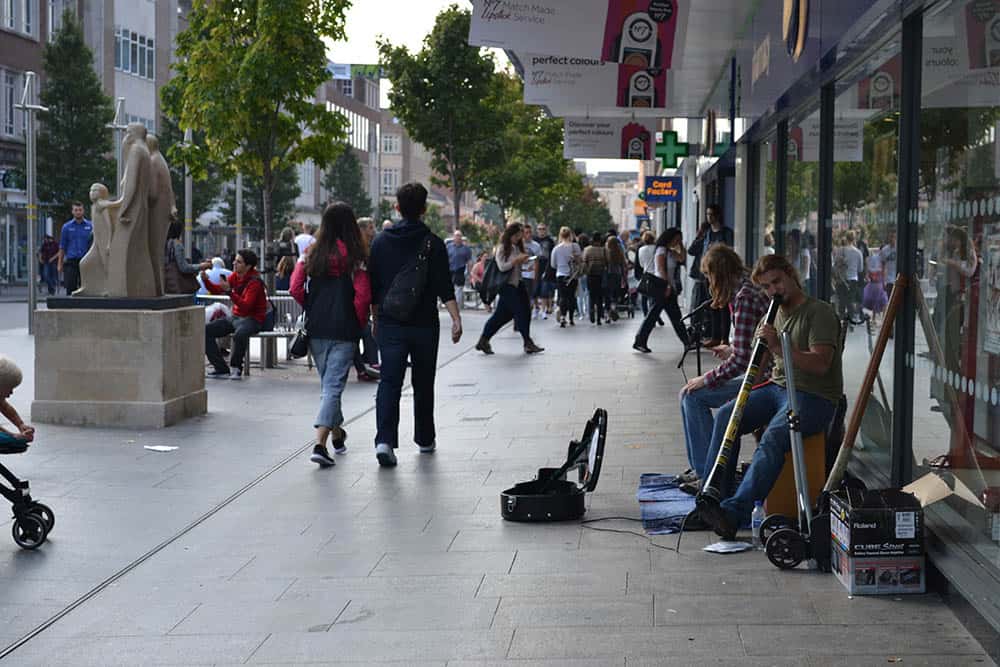Trade thoughts: Is the high street still a sustainable retail model in the mobility sector?
Recently, the woes of Britain’s high streets have made headlines as research suggests that retailers are struggling in a shifting landscape that is seeing more shoppers turn to the internet and to larger, out-of-town retail parks, rather than the traditional high streets in their local towns and cities.
According to retail statistics from consumer research and data analysis specialists Springboard, the number of retail spaces sitting empty in town centres across the UK hit its highest level since January 2015 in July 2019, alongside the worst decline in footfall for July since 2012. Additionally, data from PwC revealed that the first half of 2019 had seen the highest number of high street store closures since PwC and the Local Data Company began collecting the data in 2010.
It all sounds rather doom and gloom for the high street, however, many mobility retailers continue to see success on the traditional shopping hubs, with new stores continuously opening up and down the UK. THIIS asks five leading mobility retail leaders to share their thoughts on whether the high street is a sustainable retail model for the mobility sector…
Mike Williams, Managing Director of Ableworld

“As in all trades, a busy high street is great for customer flow. The issue is once the larger stores come into (or out of) town with larger ranges and better prices, the high street retailers can start to struggle, whatever the trade.
“I see the main issue as being the style of the mobility shop that is situated on the high street. If they can offer a more specialised service and a more diverse range of products away from the norm, then I believe there is every case for it. Offering a restricted range of standard products will not work ultimately.
“When I first came into the trade I was told ‘nationwide out of town stores won’t work in this trade’. As in any other industry, if you can offer the full range, best prices and ample car parking, it definitely does work and we and others like us are here to stay. But that doesn’t mean there is no room for innovative mobility stores on the high street.”
Daniel Griffiths, Managing Director of Easy Living Mobility

“As we see in the press daily, there are certain high streets up and down the country that are in a really bad way but there are other’s not so – well that’s my take anyway.
“We have 12 stores currently and out of these stores, until this year, it was a 50/50 split of out-of-town & high street branches. This year, we have opened two stores on the high street, making seven high street stores and five out-of-town.
“So, can the industry continue on the high street? Yes, I believe it can. Can there be a mobility store on every high street? Probably not and I have to go back to my first comment and say every high street has to be taken on its own merit.
“This doesn’t mean though that there can’t be a store in or around every town, if that’s on a main road around a town or a retail park – there’s clearly a need and a growing need for elderly people to want to enjoy their lifestyle more by using everyday equipment and the same goes for the disabled community too.”
Alastair Gibbs, Managing Director of TPG DisableAids

“To sell mobility products effectively, any retailer should have space to demonstrate and to train the customer. This requires outside space that is not crowded with pedestrians and also has the space for parking.
“Additionally, in our view, there should be sufficient covered space to offer complementary products and offer an in-house repair facility. This amount of space in a high street location would be prohibitively expensive when the cost of each square foot has to produce a return.
“Out of town or trading estate locations allow far more flexibility with the only downside being visibility. This location awareness can be overcome with signage, advertising and then, ultimately, word of mouth – plus the cost of doing that is covered by the reduced rent and rates.
“Small aids and ADLs that are easy to carry may have a place on the high street but they alone cannot make a sustainable business.”
John Payne, Managing Director of Kent Mobility

“There has to be a good reason for customers to come into the towns, especially with high parking fees (if they have no blue badge) and the lack of parking generally, making high streets less accessible.
“With the growing overheads to run a retail high street outlet, most of the shops I have seen are overcrowded with products, with no area to demo and trial products e.g. scooters/powerchairs. They can only demo up and down the pavement outside and with all the press attention about accidents on mobility products, it begs the question if this type of driving assessment is acceptable. I feel the owners will need to have a good think how they operate.
“I have not seen any shop that has private assessment areas for customers with complex disabilities or hoists for transfers and while there may be some premises that have these, it is not usual.
“I personally think the competition is so great with just selling rehab equipment, scooters and low-end chairs, coupled with low buying power compared with the multi-nationals, that the independent high street retailer may find things getting much harder, although I hope not.
“With the high street filling up with charity shops – ours has eight now – and councils looking at turning the empty shops into houses, it will drive more customers to out-of-town retail parks. The other problem is we all standalone, trying to fight our own corner; there are no groups supporting the independent retail outlets.
“There will be a lot of people reading this that will not agree with what I have said… I hope they are right and I am wrong.”
Justina Nurse, Managing Director of Stuart Mobility

“The important thing is getting the balance right, where you can offer a good price but also a great service with aftercare. Our customers are often vulnerable and usually spending a lot of money on products they need to try or be assessed for and simply buying from an online store without the care and knowledge of trained staff will create issues for both the consumer and the reputation of the seller.
“However, I think a lack of price transparency with some online companies is not helping and equally bricks and mortar stores are only looking at their immediate town or city which gives them a limited market.
“We can no longer sit back. It’s time to embrace the new shopping culture that is only going to grow and think about prices, online combined with a shop, and a change in marketing strategies that includes social media and online marketing.”



